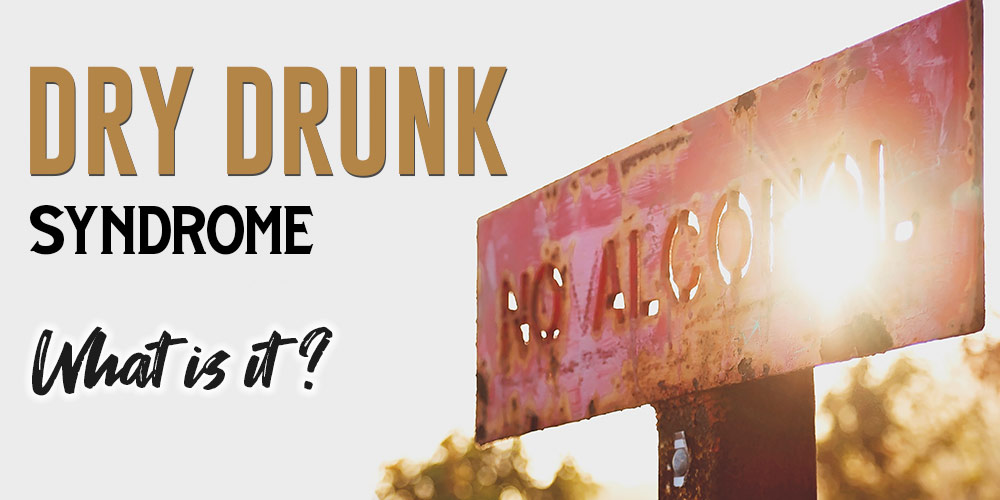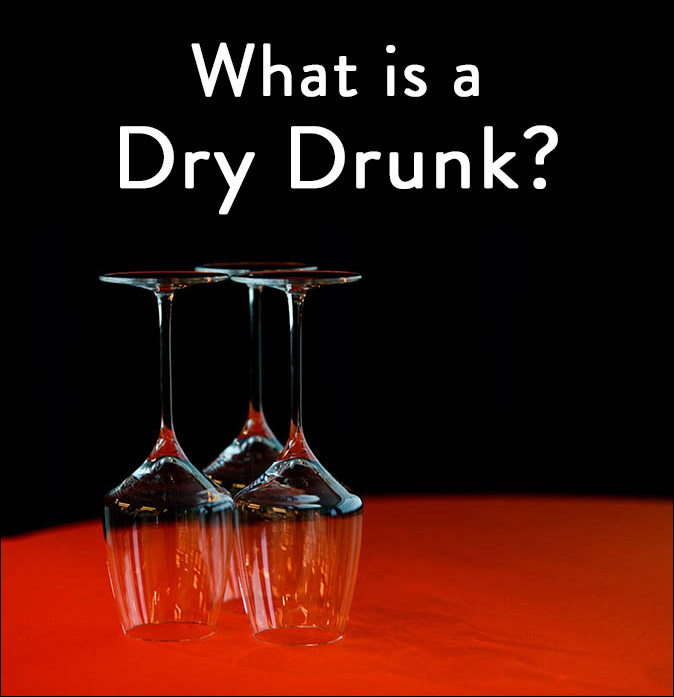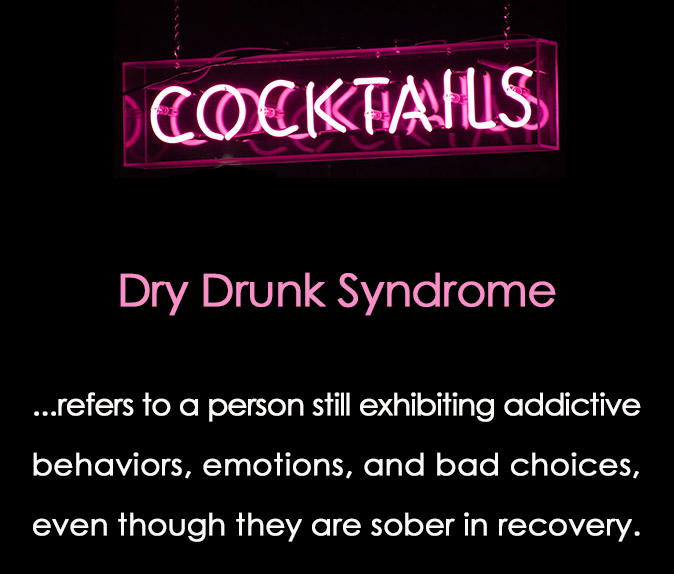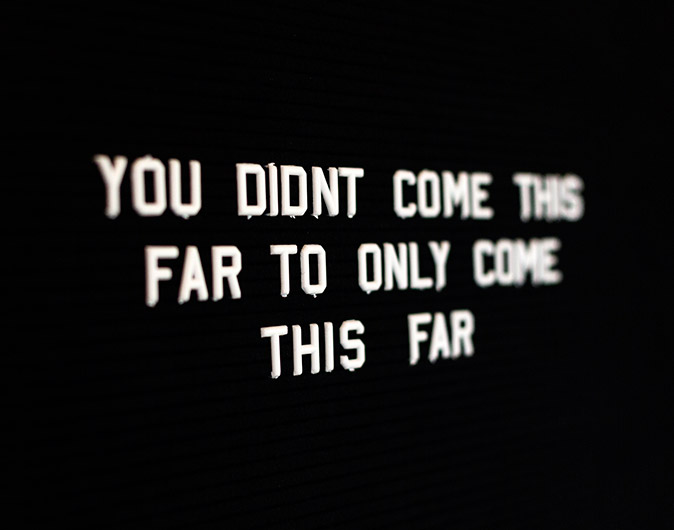
The term Dry Drunk Syndrome, or simply Dry Drunk, refers to a person who quit drinking alcohol but still has destructive or unhealthy behaviors related to addiction.
Avoiding the self-examination and emotional work necessary for recovery can leave a person who’s entirely sober feeling worse than they did before they quit drinking altogether.
For an alcoholic, or anyone who struggles with a substance use disorder, there’s a big gap between sobriety and actively recovering from addiction. Stopping alcohol use or other addictive substances is only the first step on the journey to a meaningful, productive, and lasting recovery.
In addition to simply stopping the use of alcohol or drugs, it’s also necessary to identify the root causes of why a person struggles with addiction and work on ways to overcome those issues as well.
It’s important to have some perspective about addiction, even for those who have been sober for years. After all, it is a complex, chronic relapsing disease of the brain. Because of the stigma associated with it, people battling addiction issues are generally overly critical of their setbacks and successes.
Only about 19 percent of the more than 20 million people who need addiction treatment in the United States receive it, according to a report by the National Survey on Drug Use and Health (NSDUH) found on the SAMHSA website.
Even though addiction is a highly treatable disorder, it has similar rates of relapse when compared to other chronic illnesses, such as diabetes, asthma, and high blood pressure.

An estimated 40 to 60 percent of people in recovery will relapse, but this does not mean that their recovery has failed, according to the National Institute on Drug Abuse (NIDA).
Staying vigilant, learning to cope with stressors, and continuing the work of recovery is not always simple or effortless. Life is difficult. It’s all too easy for a person to find himself or herself feeling untethered, vulnerable, and at risk of developing another addiction.
What is a Dry Drunk?
The expression Dry Drunk refers to an individual exhibiting many of the addictive behaviors, emotions, perspectives and choices of someone in active addiction, even though they are sober.
Dry Drunk Syndrome is a term born out of the Alcoholics Anonymous 12-step program to describe a person who stopped drinking but hasn’t resolved the issues that caused them to drink.
It should be said there is so much stigma related to addiction that many recovery professionals are unlikely to refer to anyone as a “drunk,” much less a dry one.
Dry Drunk Syndrome can develop out of a number of different factors, but it’s important to understand that it can be a normal part of the recovery process, much like post-acute withdrawal syndrome.
First and foremost, not every alcoholic seeks professional help to stop drinking. A person might decide after some negative experiences that they can no longer drink and simply quit.
If an individual has an undiagnosed alcohol use disorder, this means the emotional and psychological dependence issues that led to their self-destructive behavior are left unresolved.
Next, anyone in recovery can face serious life setbacks that draws them back into their old ways of thinking and feeling. All of a sudden, they might feel out of place in counseling or in support groups and stop going altogether.
Whatever the case may be, being in this chaotic emotional space can be incredibly upsetting and psychologically painful. It is often a giant “red flag” that a relapse is on the horizon if they don’t reach out for help or seek treatment options.
It’s crucial to know the warning signs and be able to spot the symptoms when they appear.

Dry Drunk Syndrome
The risk factors for developing Dry Drunk Syndrome will vary, but there are some common circumstances that can exacerbate it.
For instance, a co-occurring disorder is the presence of addiction combined with a mental health issue. One condition can amplify or worsen the symptoms of the other unless both are treated together at the same time, known as dual diagnosis treatment.
Staying in a toxic home environment or relationship, social isolation, or unaddressed grudges and resentments are other situations that can make a person feel like they’re no longer grounded in recovery, so it’s necessary to recognize the signs and symptoms.
Dry Drunk Symptoms can include some of the following:
- Experiencing mental health conditions like depression or anxiety
- Feelings of hopelessness about the future
- Restlessness
- Difficulty sleeping
- Underlying issues of withdrawal symptoms
- Irritability or trouble concentrating
- Anger or resentment about another persons’ ability to drink or do drugs without consequences
- Increased sense of shame
- Struggling with the emotional guilt or criticizing oneself
- Impulsive or risky behaviors in lieu of substance abuse, like compulsive gambling, shopping, eating, or unsafe sexual activity
- Frequently talking about using drugs or alcohol, what it used to be like, or daydreaming about how it would feel to do it again
The good news is that these issues don’t have to result in a relapse. Being aware of the symptoms is the first step to addressing them and getting some relief.
Even if a return to alcohol use does occur, recovery is still very achievable and should not be considered a failure, but instead merely a setback.

Recovery vs. Sobriety
Managing a healthy recovery, addressing the issues, and learning ways to stay sober is often full of intense self-examination and work, but with time and consistency, many of these new habits will become second nature.
Remember to go easy on yourself and develop a pattern of self-care along with a treatment plan that will stave off or even avoid dealing with dry drunk syndrome in the first place.
Some Ways to Overcome Dry Drunk Syndrome
- Don’t isolate yourself. If you’re feeling vulnerable, reach out to an understanding friend, loved one, or counselor
- Exercise regularly, outside if possible, to release endorphins, which are feel-good neurochemicals in the brain
- Work on maintaining a nutritious diet of fresh vegetables, lean proteins, fish, and whole grains
- Try to get 7 to 9 hours of restful sleep every night
- Indulge in relaxing activities, like long walks, meditation, or low impact yoga
- Cultivate an active and responsible social network of friends to get more joy out of life
- Rely on support from family, and be supportive of them
- If you find AA helpful, continue working the steps, attend meetings, or get help from your sponsor
Quitting alcohol is a necessary step for living a life of sobriety, but there is more to a successful recovery than just getting sober.
It’s also crucial to identify and manage other mental health issues like depression, anxiety, PTSD, or anything else that may have sparked a relationship to alcohol as a coping mechanism.
For anyone experiencing unresolved issues that are contributing to dry drunk syndrome symptoms, it might be necessary to seek additional help from an alcohol addiction treatment program.
Though it may seem difficult at first, the rewards far outweigh the temporary struggle of bridging the gap between being sober and living a life in recovery.
Related Posts
- Alcohol Blackout Drunk Causes, Dangers, Prevention
Ever been blackout drunk or had an alcohol blackout? That is, have your memories after…
- Effects of Alcohol on the Body and Brain
Even though alcohol consumption is widely accepted in society, there are many negative side effects…
- Is Addiction a Disease or a Choice?
Is addiction a disease? Is alcoholism genetic? Or is it simply a personal choice? These…
